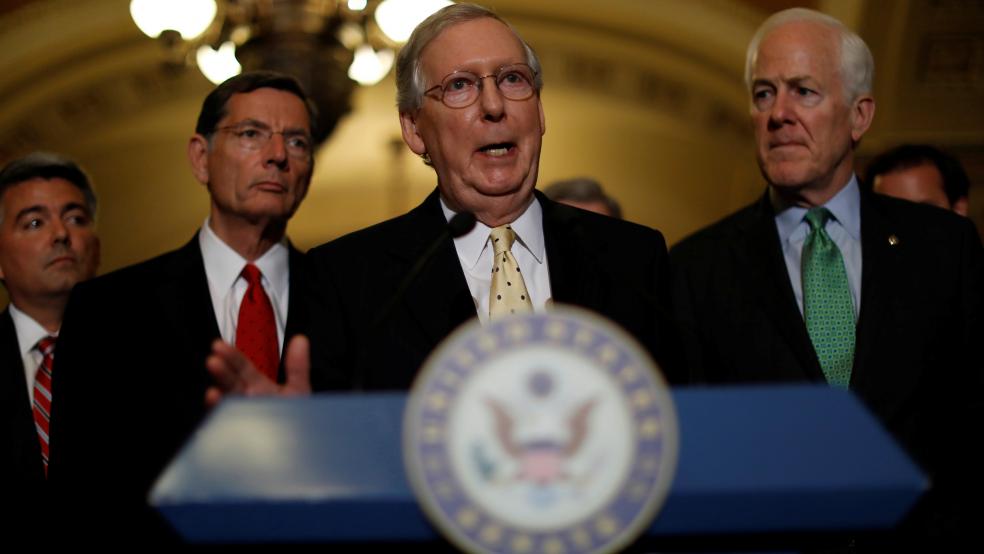Senate Republicans say they have the votes to pass their tax bill — even if they don’t yet have a final bill.
Republicans were racing Friday to finalize last-minute changes to their legislation, but said they would be holding a vote later in the day or early Saturday morning, a remarkable pace for legislation that would be the most sweeping overhaul of the country’s tax code in three decades.
“When will the Senate be able to actually see the full text of this legislation?” Sen. Ron Wyden (D-OR), the ranking Democrat on the Finance Committee, asked on the Senate floor.
“There will be plenty of time to read the final version of it before we vote,” Senate Majority Leader Mitch McConnell replied.
The late changes being introduced reportedly include an increased tax break for pass-through businesses that would allow owners to deduct 23 percent of their business income, up from 17 percent. That provision was apparently enough to win over Sens. Ron Johnson of Wisconsin and Steve Daines of Montana, who had expressed concern that the tax bill treated pass-throughs less favorably than corporations.
Another new provision, sought by Sen. Susan Collins of Maine, would preserve the deduction for up to $10,000 in state and local property taxes paid, as the House bill allows. Another change offered by Collins would increase the deductibility of medical expenses.
And Sen. Jeff Flake said he would support the bill after winning changes that would extend a provision allowing companies to immediately deduct business expenses, which had been set to expire after five years, and getting agreement that he would be involved in discussions about fixes to the Deferred Action for Childhood Arrivals law, known as DACA.
The late changes would cost more than $300 billion over 10 years, according to Bloomberg.
To pay for the additional costs, the Senate plan reportedly will not eliminate the alternative minimum tax for corporations and individuals, as the bill originally called for, and will increase tax rates imposed on offshore profits of multinational corporations.





